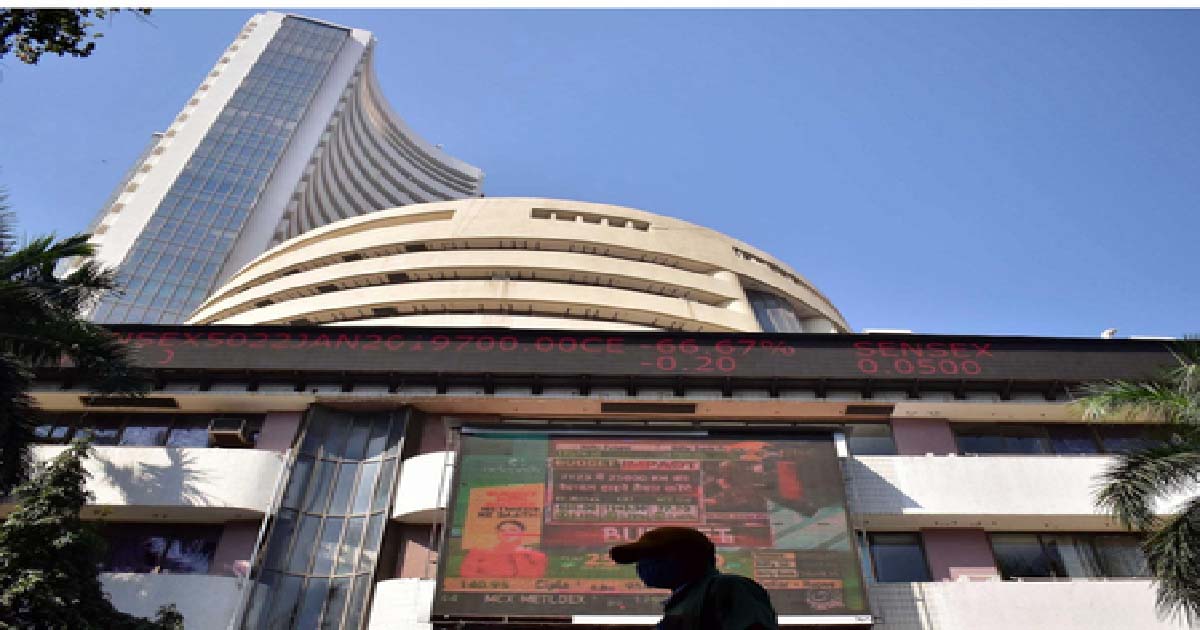Business
Birth Of Supercars; New-Age Tech Upgrading Auto Sector

The constant upgradation of AI and IoT have taken every industry by storm. Well, the auto sector seems to have gotten a different glowup with the incorporation of new-age tech. From the Aston Martin Valhalla’s incorporated F1 technology to Lamborghini Revuelto’s triple electric motor, tech is ruling the auto sector!
To be specific, the use of new age tech has given birth to supercars. Supercars are adding systems that dynamically adjust aerodynamic elements like diffusers, and air intakes in real-time to optimize drag and downforce as per driving conditions. For example the ALA (Aerodinamica Lamborghini Attiva) system in the Lamborghini Huracán Performante. In a candid discussion with Free Press Journal, Jatin Ahuja, MD and founder, BBT and Kunal Maini, CEO,CCI on how IoT, AI and automation has made supercars people’s favourite.
How do you think new age tech (IoT, AI) has enhanced supercars
The new-age tech like AI and IoT has significantly elevated the supercar experience. From enhancing performance to providing cutting-edge features, Supercars are now equipped with AI-powered systems that optimise everything from suspension settings to powertrain management which gives the driver an unparalleled experience. IoT integration allows for real-time diagnostics and performance analysis ensuring that every drive is as efficient and thrilling as possible.
At our BBT showroom, we also aim to bring these high-tech vehicles to ensure that our customers have access to the latest tech in luxury cars through an intuitive online platform.
How has tech upgraded the auto sector?
From electric vehicles to AI-powered systems, the role of technology is transformative. For example, connected cars now have the ability to self-diagnose issues, optimise driving patterns and offer real-time data to the driver. The rise of AI and IoT in the automotive ecosystem has made the buying process more personalised, allowing us to curate a more tailored experience for customers.
We see stronger focus on sustainability with electric and hybrid vehicles becoming more prominent. At CCI, we aim to simplify the buying process by incorporating advanced online tech, ensuring that the entire experience from browsing to buying is as seamless as possible.
AI and Automation are creating a craze among users. How do you think this has impacted their buying pattern?
Today’s customers are seeking a seamless, efficient and highly personalised buying experience. Whether they’re visiting our expansive showrooms or browsing through our online platform at CCI, we strive to offer a smooth journey.
For instance, CCI was designed with the customer in mind, catering to those who prefer an entirely digital experience with transparent pricing, no hidden charges and quick transactions. This shift toward more tech-enabled car buying empowers our customers to make well-informed decisions and the growing demand for digital platforms underscores the need for a smooth and automated process in the auto industry.
AI is revolutionizing India’s fast-growing shared mobility sector. What are your views on this?
While Big Boy Toyz and Cars.co.in focus on luxury vehicles, the broader automotive landscape, including shared mobility, is being shaped by these advancements. In fact, AI is enabling companies to forecast demand, optimise fleets and ensure that customers get a high-quality experience every time. As the shared mobility industry grows in India, we anticipate that luxury car rental platforms will also expand here just like in other countries and AI will allow these platforms to offer more convenience, customisation and efficiency.
What is the future of supercars?
The integration of advanced technologies like AI, IoT and autonomous driving will enhance the supercar experience, allowing for smarter and more dynamic driving experiences. The vehicles of tomorrow will likely feature fully autonomous capabilities. There are challenges to that idea but advanced real-time data analysis and even more efficient and high-performing powertrains will make a thumping difference.
Supercar manufacturers are also pushing the envelope on design and innovation and we as the front runners of the pre-owned car segment will continue to provide our customers with access to the best and most advanced supercars. These cars will remain a symbol of status and cutting-edge technology, but they’ll evolve to align with the growing demand for sustainability and connectedness.
Business
India reaches 709 million active UPI QRs, logs 59.33 billion transactions in July-Sep

Mumbai, Dec 18: The unified payments interface (UPI) transaction volumes rose 33.5 per cent (year-on-year) to 59.33 billion transactions in the July-September period, as transaction value grew 21 per cent to Rs 74.84 lakh crore, a report showed on Thursday.
India reached 709 million active UPI QRs, marking a 21 per cent increase since July 2024. Dense QR acceptance across kiranas, pharmacies, transport hubs, and rural markets has made scan-and-pay the default payment mode nationwide, according to the report by Worldline India.
Person-to-merchant (P2M) transactions continued to outpace person-to-person (P2P), reflecting UPI’s dominance in everyday retail payments.
P2M transactions were up 35 per cent to 37.46 billion transactions while P2P transactions rose 29 per cent to 21.65 billion transactions, the report said.
The third quarter (Q3 2025) further reinforced India’s position as the world’s most dynamic real-time payments economy — where every scan, tap, and click is reshaping consumer and merchant behaviour.
The average ticket size declined to Rs 1,262 (from Rs 1,363), highlighting increased usage for micro-transactions such as mobility, food, healthcare essentials, and hyperlocal commerce.
Point of sale (PoS) terminals grew 35 per cent to 12.12 million (July 2024–July 2025). Bharat QR stood at 6.10 million, witnessing marginal decline amid the shift toward UPI QR dominance.
Private banks led acceptance deployment, accounting for 84 per cent market share. While credit card issuance grew by 8 per cent (on-year) to 113.39 million cards, debit cards reached 1.02 billion and prepaid cards stood at 470.1 million.
Credit card transactions grew 26 per cent to 1.45 billion, with transaction value at Rs 6.07 lakh crore. Debit card transactions declined 22 per cent, reflecting migration of low-ticket spends to UPI, the report showed.
Mobile and tap-based payments continued to accelerate, with contactless adoption gaining momentum across metros, mobility services, and quick-service retail.
“The outlook for Q4 2025 and early 2026 points to accelerated innovation and deeper ecosystem integration. Interoperable QR is expected to move from pilot phases to everyday usage across mobility, healthcare, fuel stations, and public utilities—delivering a unified scan-and-pay experience,” the report mentioned.
Business
Indian rupee likely to bounce back strongly in 2nd half of next fiscal: SBI report

New Delhi, Dec 17: Geopolitical uncertainties driven by the delay in the India-US trade deal have been the single-most important reasons for the rupee sliding against the US dollar, an SBI Research report said on Wednesday, adding that the rupee is likely to bounce back strongly in the second half of the next fiscal.
India’s trade data shows the remarkable resilience in navigating through prolonged uncertainty, more protectionism and labour supply shocks.
“While the geopolitical risk index has moderated since April 2025, the current average value of the index for April-October 2025 is much greater than its decadal average, which indicates how much pressure global uncertainties are exerting on INR,” State Bank of India’s (SBI) Group Chief Economic Advisor, Dr Soumya Kanti Ghosh, said.
Dr Ghosh further stated that consistent with their empirical analysis, “the rupee is currently in a depreciating regime and is likely to exit it”.
After breaching the psychologically important mark of 90 per US dollar, the rupee crossed the 91-level on Tuesday.
However, the rupee staged a sharp recovery on Wednesday, trading as strong as 90.25 during the day, as the cooling of crude prices also contributed to improved sentiment.
According to the SBI report, the data also indicates that the current fall is the quickest (in terms of number of days) of the rupee, scaled to 5 per USD. In less than a year, the rupee has slid from 85 to 90 per dollar.
The current slide appears to be primarily driven by FPI outflows, chiefly equities (after two years of robust inflows) and uncertainty regarding the US-India trade deal.
Since April 2, 2025, when the US announced sweeping tariff hikes across economies, the Indian rupee (INR) has depreciated by 5.7 per cent against USD (most amongst the major economies), notwithstanding sporadic phases of appreciation owing to optimism over the US-India trade deal.
“While INR is the most depreciated currency, it is not the most volatile. This clearly indicates that the 50 per cent tariff imposed on India is one of the major factors behind the current phase of rupee depreciation,” the SBI report noted.
Business
Indian markets hit fresh highs in November, outshine global peers: Report

Mumbai, Dec 17: Indian equity markets touched fresh all-time highs in November and clearly outperformed global markets, a new report said on Wednesday.
The data compiled by PL Asset Management said India emerged as a bright spot at a time when many global markets struggled due to weak technology stocks, fading enthusiasm around artificial intelligence and soft economic data from China.
The report noted that record-low inflation, steady domestic growth and reasonable valuations improved the overall outlook for investors.
“While global markets remained uneven, India benefited from strong local demand, supportive liquidity and a predictable policy environment,” the report said.
Inflation played a major role in boosting market sentiment during the month. Consumer price inflation fell sharply to just 0.25 per cent, the lowest level on record and far below the Reserve Bank of India’s target of 4 per cent.
This sharp fall strengthened expectations of further interest rate cuts, which supported equity valuations. Reflecting confidence in the economy, the RBI raised its GDP growth forecast for FY26 to 7.3 per cent.
India also recorded strong GDP growth of 8.2 per cent in the second quarter of FY26, reinforcing its position as the fastest-growing major economy in the world, the report said.
Domestic economic indicators remained healthy despite global challenges. Manufacturing activity stayed strong, even though exports were slightly affected by tariffs.
Goods and Services Tax collections remained robust at Rs 1.70 lakh crore, as per the report.
Festive season spending also supported growth. In addition, India’s current account deficit improved to 1.3 per cent of GDP.
Global markets, meanwhile, showed signs of fatigue. US technology stocks faced profit booking, China and Hong Kong markets weakened due to poor economic data, and investors turned to precious metals for safety.
Crude oil prices softened amid expectations of interest rate cuts by the US Federal Reserve. Against this global backdrop, India’s stable fundamentals helped it continue to outperform.
Siddharth Vora, Head – Quant Investment Strategies & Fund Manager, PL Asset Management, said, “Indian markets continue to demonstrate relative resilience at a time when global risk assets are undergoing a phase of recalibration.”
-

 Crime3 years ago
Crime3 years agoClass 10 student jumps to death in Jaipur
-

 Maharashtra1 year ago
Maharashtra1 year agoMumbai Local Train Update: Central Railway’s New Timetable Comes Into Effect; Check Full List Of Revised Timings & Stations
-

 Maharashtra1 year ago
Maharashtra1 year agoMumbai To Go Toll-Free Tonight! Maharashtra Govt Announces Complete Toll Waiver For Light Motor Vehicles At All 5 Entry Points Of City
-

 Maharashtra1 year ago
Maharashtra1 year agoFalse photo of Imtiaz Jaleel’s rally, exposing the fooling conspiracy
-

 National News1 year ago
National News1 year agoMinistry of Railways rolls out Special Drive 4.0 with focus on digitisation, cleanliness, inclusiveness and grievance redressal
-

 Maharashtra1 year ago
Maharashtra1 year agoMaharashtra Elections 2024: Mumbai Metro & BEST Services Extended Till Midnight On Voting Day
-

 National News1 year ago
National News1 year agoJ&K: 4 Jawans Killed, 28 Injured After Bus Carrying BSF Personnel For Poll Duty Falls Into Gorge In Budgam; Terrifying Visuals Surface
-

 Crime1 year ago
Crime1 year agoBaba Siddique Murder: Mumbai Police Unable To Get Lawrence Bishnoi Custody Due To Home Ministry Order, Says Report












